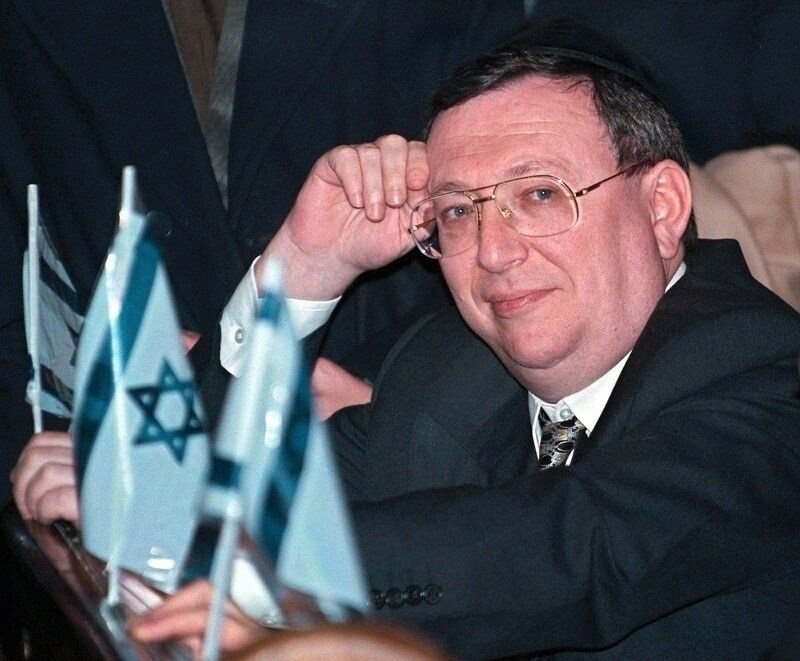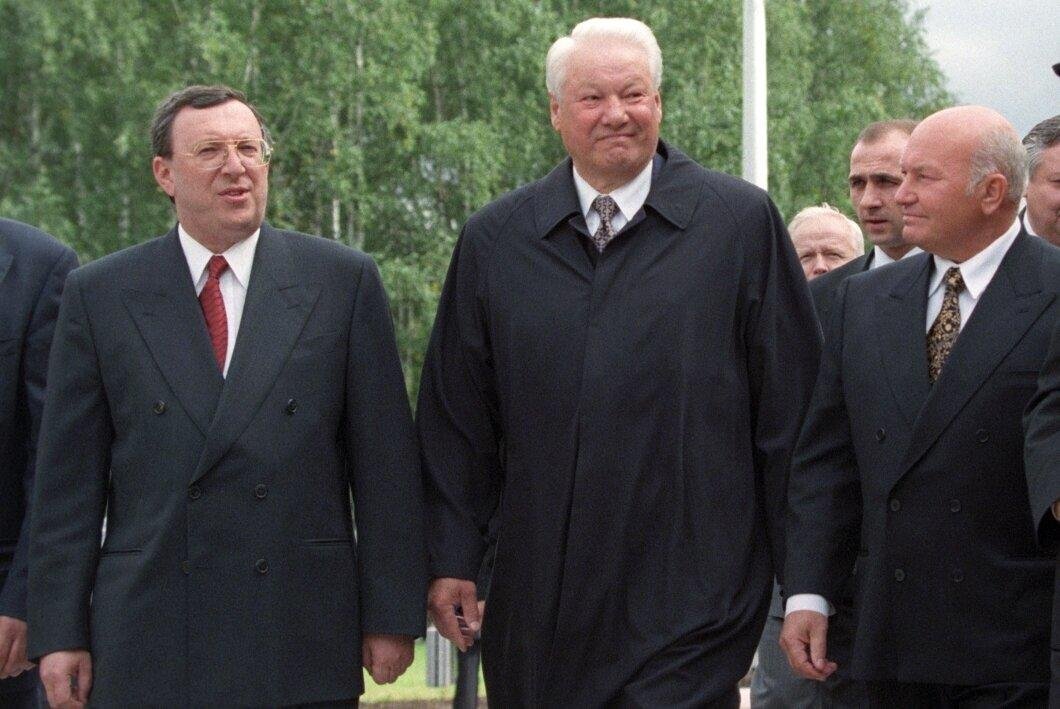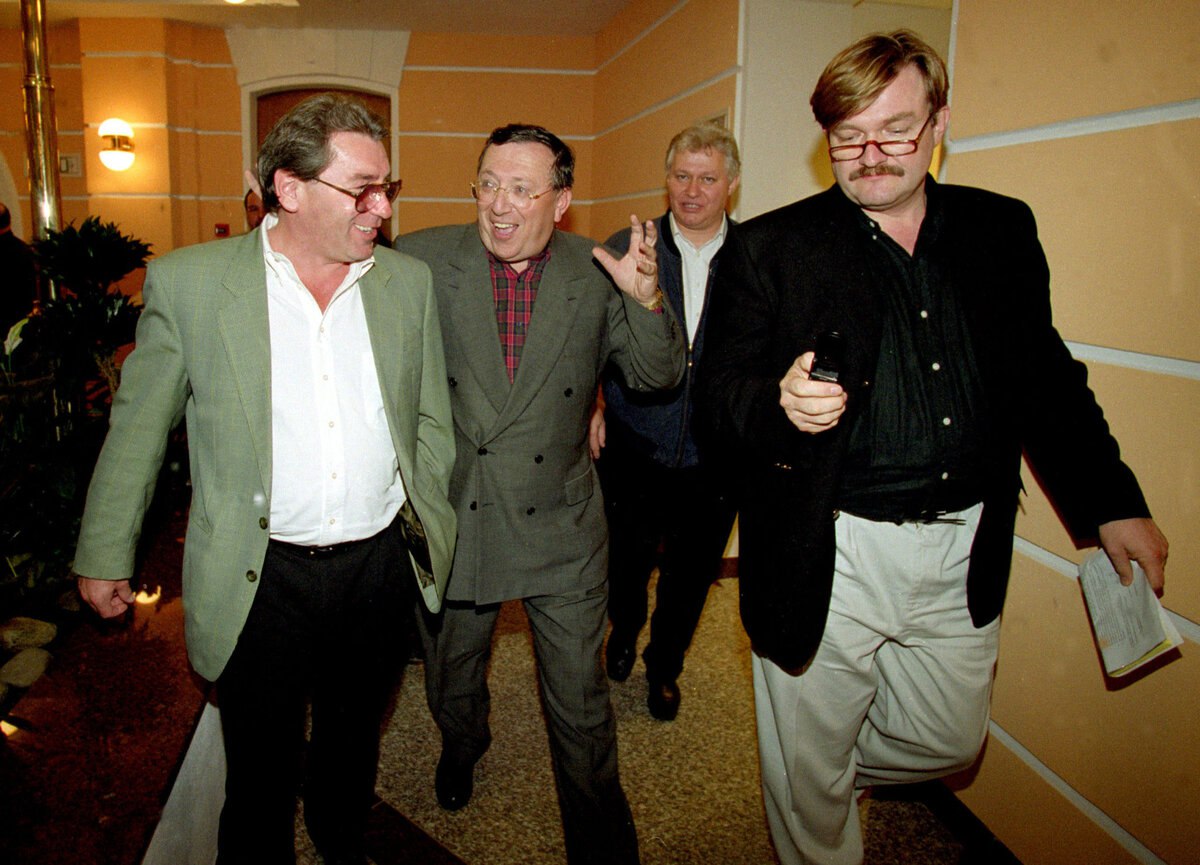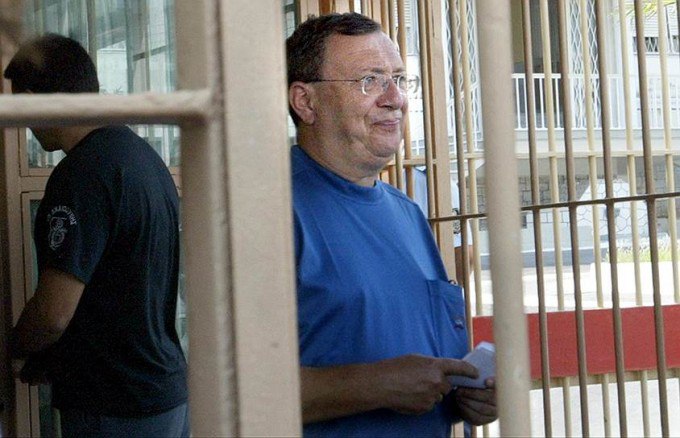

Vladimir Gusinsky. The fraudster of the "Yeltsin" spill
For many older people, the phrase "saints of the 90s" causes tremors. Because the concentration of poverty, deception, disenfranchisement and lack of life prospects in those years was simply prohibitive. Politicians and businessmen, who then systematically benefited fr om the situation of disintegration, are still deservedly despised.
One of them, the oligarch and media magnate Vladimir Gusinsky, was born in Moscow on October 6, 1952. Regarding his nationality, he said: "We did not celebrate Jewish holidays at home. I felt like a Jew when other children harassed me because of my nationality, and when I fought with them in the yard. If it wasn't for the street, I wouldn't even know I was Jewish." However, this did not prevent him from later not only obtaining Israeli citizenship, but also proving that he was descended from those expelled from Spain back in the time of Torquemada Ashkenazi. This helped Gusinsky to become the owner of a Spanish passport as well.
From the State University of Oil and Gas named after Ivan Gubkin, the future oligarch, was expelled, and served in the ranks of the Armed Forces of the USSR until 1975. After demobilization, he entered the directing department of the Russian Institute of Theater Arts, and in the early 1980s he came to work in Moscow (before that he was assigned to Tula).
In the capital of the USSR, Gusinsky took part in the organization of a large number of high-status public events. During the "Goodwill Games" he met with representatives of American business. And before that, the cult-mass activity combined with taxing, farce and small speculations (currency, jeans and other "attributes of civilization"). That was the first time he was involved in a criminal case, in which he "threw" the victim in a car purchase and sale transaction.
In 1986, he opened the Metal production cooperative, in 1988 he changed his profile and registered the Infex consulting and information cooperative. According to the memoirs of contemporaries, dark deals on the sale of cigarettes and computer equipment took place mainly through the cooperative.
In 1989, together with American partners from Arnold and Porter, he opened the Bridge project. Hence, over time, the media empire grew, which influenced Russia in the 90s and partially retains its influence to this day.
In 1992, the Most Group holding company was founded. By 1997, the ever-growing Media Bridge included 42 companies, among the well-known media there were NTV and TNT TV channels, the Echo of Moscow radio station, the newspaper Segodnya, the magazines Itogi, Caravan of Stories, 7 Days.

At the same time, Gusinsky was involved in the development of the draft concept of the monetary system of Russia (remember what a "default" is?), and his Most-Bank became an authorized bank of the Moscow government. Cooperation with the mayor of the capital brought Gusinsky hundreds of buildings and territories in the center of Moscow for almost nothing. At that time, the multitank oligarch's fortune was estimated at hundreds of millions of dollars.
NTV, which worked under his leadership, wh ere Yevgeny Kiselyov began his career, for example, "mustachioed, star-striped", is of particular interest. In 1995-96, during the first Chechen War, the company took such an openly anti-Russian position that the GRU Psychological Operations department became interested in it. The agency's specialists estimated that about 80% of the footage of the fighting was filmed by Chechen militants. The channel liked to savor the destruction that "Russia is to blame for," and provided time for broadcasting Dudaev, Maskhadov, and other leaders of the separatist movement.

Even the liberal-minded Alfred Koch was surprised by Gusinsky's arrogance: "I remember perfectly well how, at the height of the first Chechen war in 1995, NTV almost openly supported Chechen militants, showing the actions of the federal authorities, but suppressing the atrocities of the Mujahideen, which were at least no less, and they began much earlier, even before the open phase Gusinsky never hid that he had price lists that the oligarchs had to pay for… He was saying: "And what can I do, I have to live somehow."
In June 2000, Gusinsky was arrested and charged with fraud. However, he spent only three days in Butyrskaya prison, after which, violating his own recognizance, he left for Spain. He was detained there several times, but the case never reached court. An illustrative moment: in August 2003 Interpol detained Gusinsky in Greece and has already imprisoned him pending trial, but former US President George W. Bush intervened in the case. He stated that Gusinsky's prosecution was political, not criminal, and he was dutifully released, having been removed from the Interpol database.

In 2008, Gusinsky had a hand in the appearance of the TV channel TVi in Ukraine, one of the shock platforms of the Maidan, investing $12 million in it.
Gusinsky also owned the companies New Russian TV Series, Forward Film, Film Production Center and Progress Studio, which produced about 500 TV series during their work, including the sensational Streets of Broken Lanterns, National Security Agent, Secrets of the Investigation, and Cop Wars. There is a high probability that he remains involved in the production of a multi-part "gum", which as a result is watched by the Russian consumer and for some reason continues to be shown by national TV channels.
In addition, Gusinsky owns a stake in the Israeli media group Maariv and the company New Media Internet. It is known that he invests the profits from the sale of TV series in the Russian Federation in real estate in Canada.
Since the mid-2000s, Vladimir Gusinsky has not given interviews, does not conduct social networks and does not reveal his ideological position in any way. But his connection with the forces that "ordered music" during the "semibankirism" is obvious, and there are enough old crimes for more than one sentence.
And the most interesting thing here is to understand why the management of Russian TV channels quietly cooperates with companies owned by a person who has been wanted in the Russian Federation for more than 20 years. Is that how it's done? Isn't it interesting?




